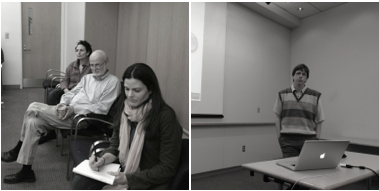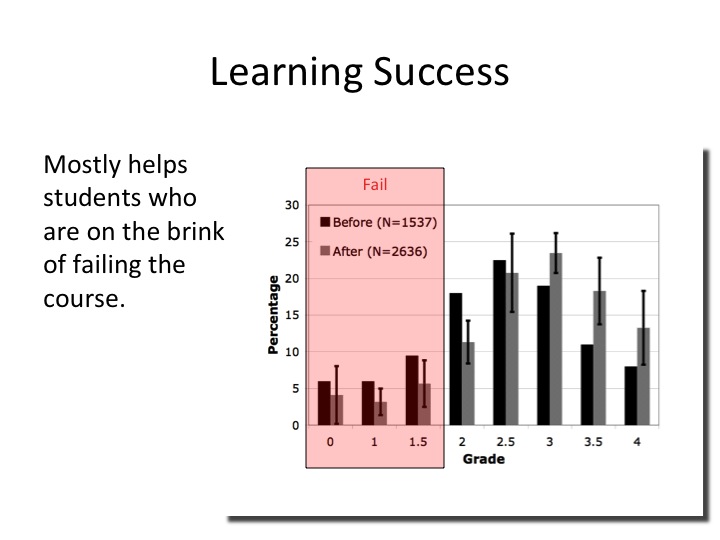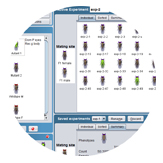 Professor Gerd Kortemeyer
Professor Gerd Kortemeyer
Title: The Assessment Continuum: Before, In, and After Lecture
Group Meeting Date & Time: Wednesday, January 25, 2012 @ 2:00 pm
View the slides presented at this Education Group Meeting
Gerd Kortemeyer is an Associate Professor of Physics Education at Michigan State University Lyman Briggs College, where he frequently teaches introductory physics courses for mostly life-science majors. While Professor Kortemeyer is on sabbatical in Professor David Pritchard’s group at MIT, we had the pleasure of hearing a dynamic Education Group Meeting about the LON-CAPA project. The LON-CAPA project is an open-source learning content management system, of which Prof. Kortemeyer is the Principal Investigator and Director. He has an extensive 10-year history integrating the LON-CAPA project into his introductory physics course at MSU. Within the last 10 years, the LON-CAPA project has grown to include a library of approximately 450,000 resources that are shared between participating learning institutions.

Professor Gerd Kortemeyer's Group Meeting
In this group meeting, Professor Kortemeyer showed data that indicates that when LON-CAPA is fully integrated into a course, students’ learning increases. Professor Kortemeyer first stressed that technology tools, such as LON-CAPA, need to be fully integrated into a course to provide a benefit to a student’s learning experience. Such technological tools must be an effective use of time for both the student and instructor – technology should support the learning goals of a course and not used for technology sake. Professor Kortemeyer also stressed the importance of letting student’s know what to expect and what is expected of them when technology is introduced into a course. Additionally, timely assessment, such as that included in the LON-CAPA course management system, of both the students’ learning and the instructors’ teaching, greatly benefits students’ learning.
Prof. Kortemeyer illustrated the full assessment capabilities of the LON-CAPA project, including pre-lecture, in-class, homework and exam questions. The Pre-Class questions integrated in the LON-CAPA system follow Just-In-Time teaching methods and prepare students for lecture. Based on answers to the Pre-Lecture questions and online discussion boards, Professor Kortemeyer can customize each lecture to meet the students’ learning needs. In-Class clicker questions are designed to assess students’ learning in real time during the lecture. By looking at the histogram of the clicker questions’ responses, Professor Kortemeyer can make decisions on what the next step should be: go on with the class, explain something again or let discussion take place between students and vote again. Professor Kortemeyer commented on the fact that during the course of the semester the novelty of using technology in class wears out. To encourage his students, Professor Kortemeyer offers incentives by awarding additional points to those who submit correct answers to the clicker questions. Another important feature of LON-CAPA is that it is capable of creating different homework and exam problems for each student. While each problem addresses the same concept, it is varied slightly to ensure that each student needs to think critically about the core concept and not simply copy an answer.

Integration of LON-CAPA into the classroom increases students' learning. Comparison of the grade distribution in introductory physics before and right after LON-CAPA was introduced for the first time.
In his group meeting, Prof. Kortemeyer demonstrated the learning benefits of the LON-CAPA system. Prof. Kortemeyer displayed online discussion sessions demonstrating students’ active participation in concept-based, in-depth discussions about physics concepts. Amazingly, students’ interactions in the online discussion sessions is substantial without providing any incentives. Additionally, in comparison to prior courses without utilization of the online homework system, the average grade in the course increased following integration of LON-CAPA into an introductory physics courses. Further, Prof. Kortemeyer demonstrated that LON-CAPA, particularly the continuous student learning assessment, especially benefits those students who are at risk of failing the course.
The ability to create and grade individually unique Pre-Class questions, homework assignments and exams has been completely integrated into MSU’s multiple choice system. Students each obtain a specific code which denotes their version of the problem. Students’ answers can then be directly imported into the LON-CAPA system, which grades the assignments. These individualized assignments along with an integrated grading system make LON-CAPA the perfect choice for institutions with very large class size and limited teaching assistant support.
The LON-CAPA system now has nearly 450,000 total resources across multiple disciplines, including Physics, Chemistry and Biology, to directly benefit both university and high school classrooms. The resources and ability to share such resources among instructors at different institutions is instrumental in integration of an online course management system. The LON-CAPA system is free, but only instructors can have access to the online pool of available questions. Currently, Professor Kortemeyer is trying to address the difficult challenge that instructors face of finding the proper question(s) from a large pool of resources. He is currently adding functionality that would enable LON-CAPA to make intelligent recommendations to instructors based on their question usage history.



